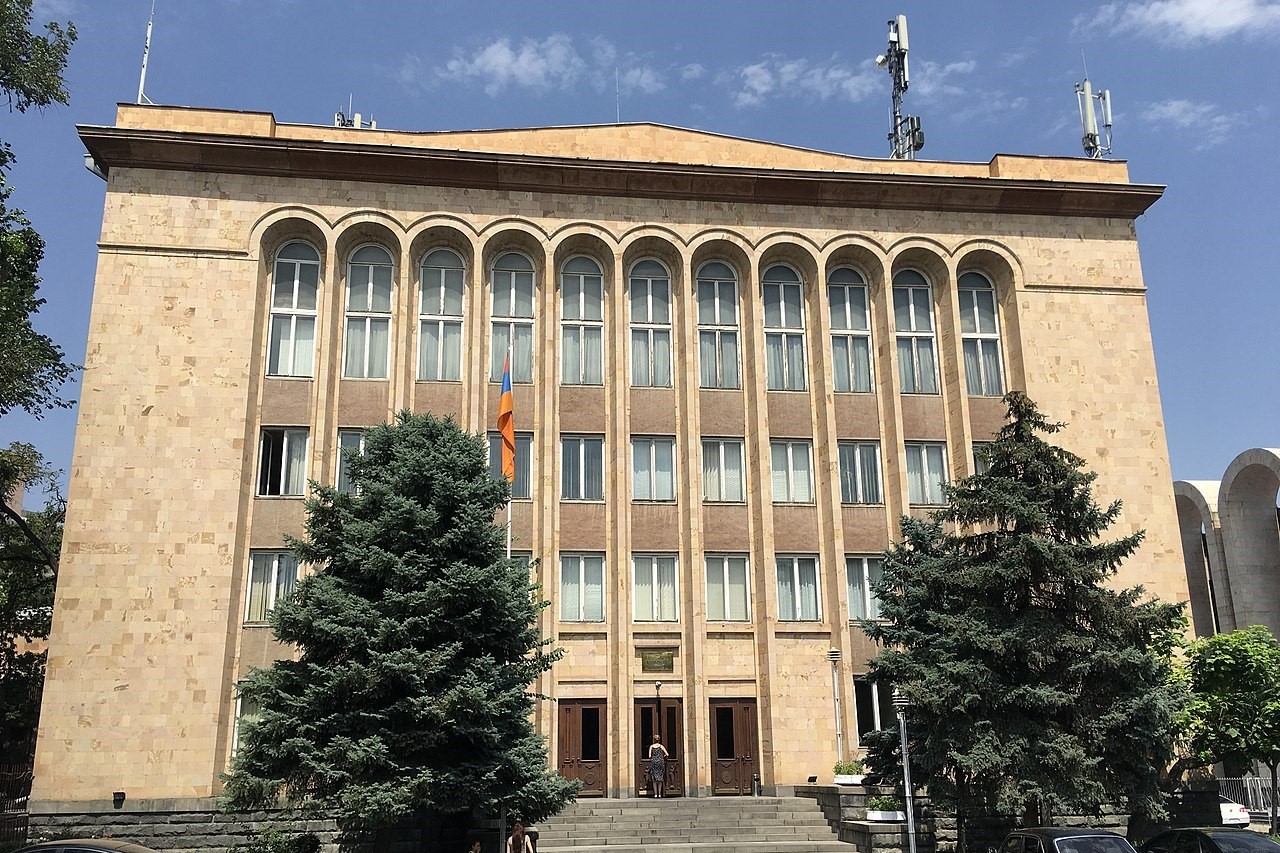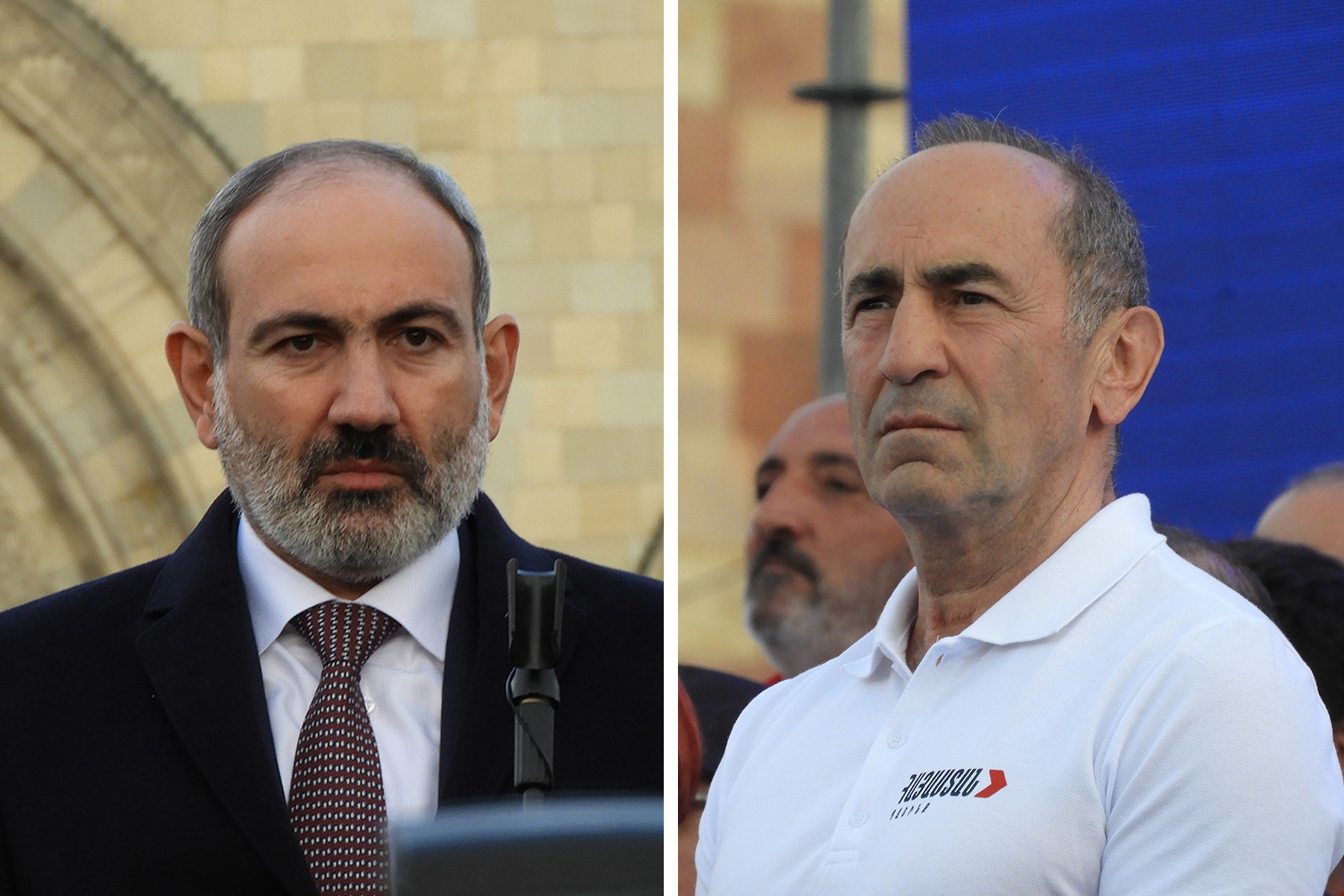Armenian Constitutional Court dismisses appeals by Kocharyan upholding election results

Armenia’s Constitutional court has denied the opposition’s request to annul the results of the 20 June snap parliamentary elections, following a week of deliberations.
The results were challenged by the Armenia Alliance, led by former President Robert Kocharyan, the I’m Honoured bloc, led by former National Security Service chief Artur Vanetsyan, and two minor parties.
In addition to requesting that the results be annulled, the four parties had also appealed for a recount of the number of seats to be allocated to each party or for a second round to be held between the governing Civil Contract party and Armenia Alliance.
Announcing their ruling on Saturday evening, the court dismissed all appeals.
The four opposition parties had accused the authorities under acting Prime Minister Nikol Pashinyan of committing electoral violations, including the misuse of administrative resources.

Reports by local and international observers confirmed that the country’s first post-war elections were fair and free, with reports of small violations carried out mainly by the Armenia Alliance and I’m Honoured bloc.
The authorities have mostly refrained from commenting on the decision. However, the Prime Minister chief of staff, Arayik Harutyunyan, wrote on Facebook that ‘the decision of the people is invincible’.
Members of the Armenia Alliance and I’m Honoured bloc have dismissed the ruling, claiming that the judges were afraid of ruling against the government.
Aram Vardevanyan, a lawyer elected as an MP of the Armenia Alliance said the judges were afraid of having their ‘fingers cut off’, or ‘being laid down on the asphalt’.
‘In these conditions, the Constitutional Court did not have the courage to make the right decision to invalidate the election results’, Vardevanyan stated. He said the party was discussing the possibility of applying to the European Court of Human Rights.
Former Republican Party Justice Minister and current I’m Honoured member Davit Harutyunyan said the decision was not surprising. ‘The decision is not political, it’s legal, but adopted under political influence’, he said.
A tense hearing
The deliberations between 9–14 July, which were public, remained tense throughout.
Many critics of the court have alleged that the judges are loyal to the previous government. In late March, the same judges dismissed a case against Kocharyan and his allies over the 1 March 2008 crackdown on protests, which left 10 people dead.
[Read more: Armenia’s top court dismisses Kocharyan case as ‘unconstitutional’]
During the first days of hearings, a group supported and led by Arman Babajanyan protested in front of the court demanding the judges remain impartial and not side with Kocharyan. Babajanyan was elected an MP in the 2018 elections under the Bright Armenia Party, before leaving to form the For The Republic Party, which failed to win seats in the latest vote.
Several motions brought by the opposition were rejected by the court, including involving President Armen Sarkissian in the process. Another saw the opposition attempt to have one of the nine judges, Vahe Grigoryan, recused. Grigoryan previously represented the families of the victims of the 1 March 2008 unrest which the opposition made him a biased against Kocharyan.
Another judge, Hrayr Tovmasyan, was accused of supporting the opposition and the electoral violations allegedly committed by them.
New Parliament to be formed
Following the court’s ruling the new parliament can now be formed. The Civil Contract party will maintain its majority, though, with fewer seats than after the 2018 elections.
After receiving around 54% of the votes in a landslide victory, the Civil Contract will hold 71 seats of 107 in the parliament which will be one too few to make changes to the constitution.
Second President Kocharyan’s Armenia Alliance won 21% of the votes, becoming the second force in the Parliament. The I’m Honoured bloc led by former Pashinyan ally and former National Security Service chief Artur Vanetsyan, along with third president Serzh Sargsyan’s Republican Party, will also sit in parliament despite not passing the 7% threshold as at least three parties must be represented.
While the Armenia Alliance and I’m Honoured bloc have not officially confirmed they will take up their seats, they have made several statements suggesting they will do so.
Kocharyan has stated that he ‘could not imagine’ himself sitting in Parliament despite running at the top of his party’s list, but that he wished for his party to enter Parliament.
The Armenia Alliance, which includes the Armenian Revolutionary Federation (ARF) and a new party led by former Syunik governor Vahe Hakobyan, have said they intend to be a ‘radical opposition’ and mix the street protests with a ‘fight against the authorities’ in Parliament.








